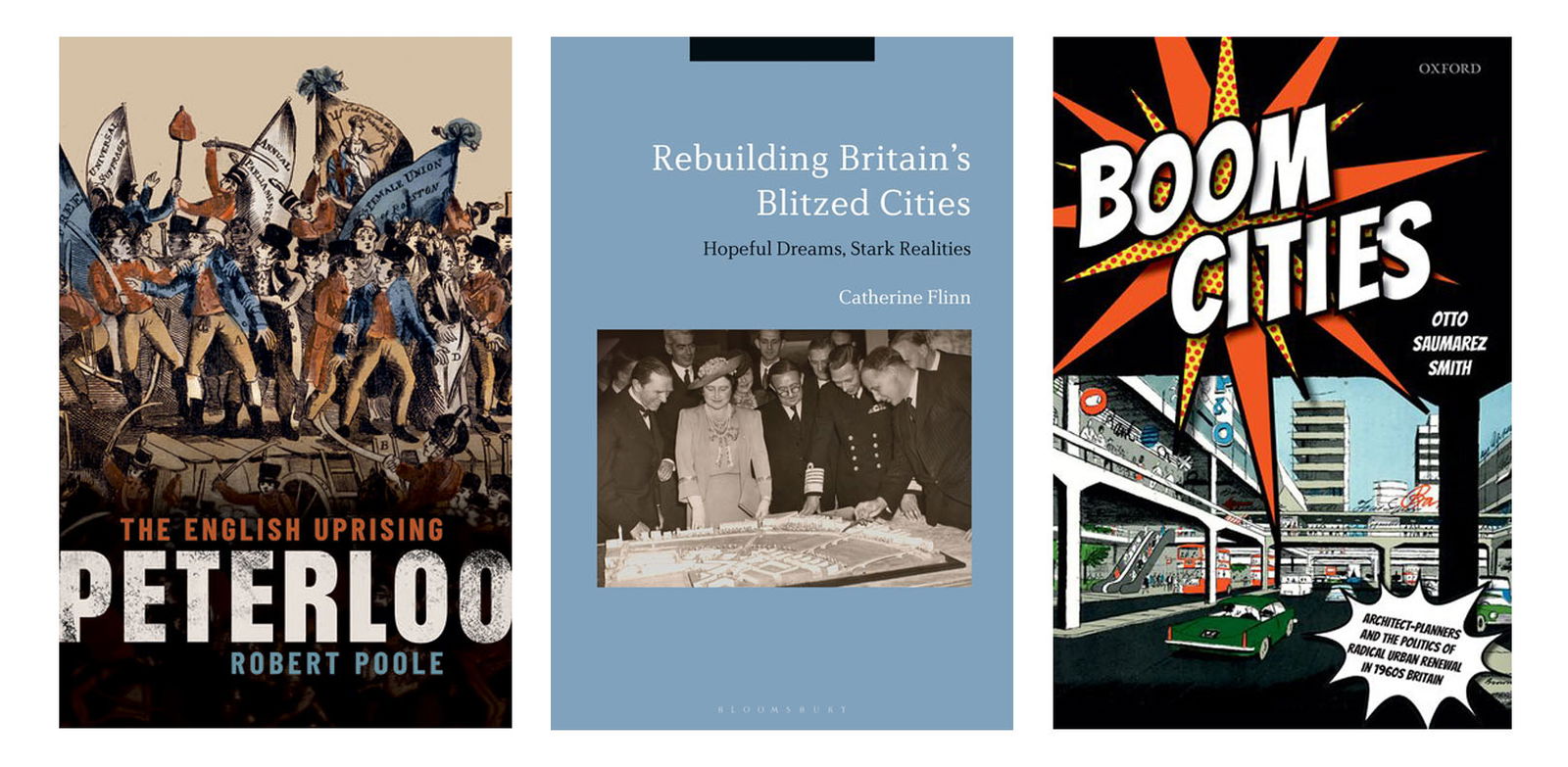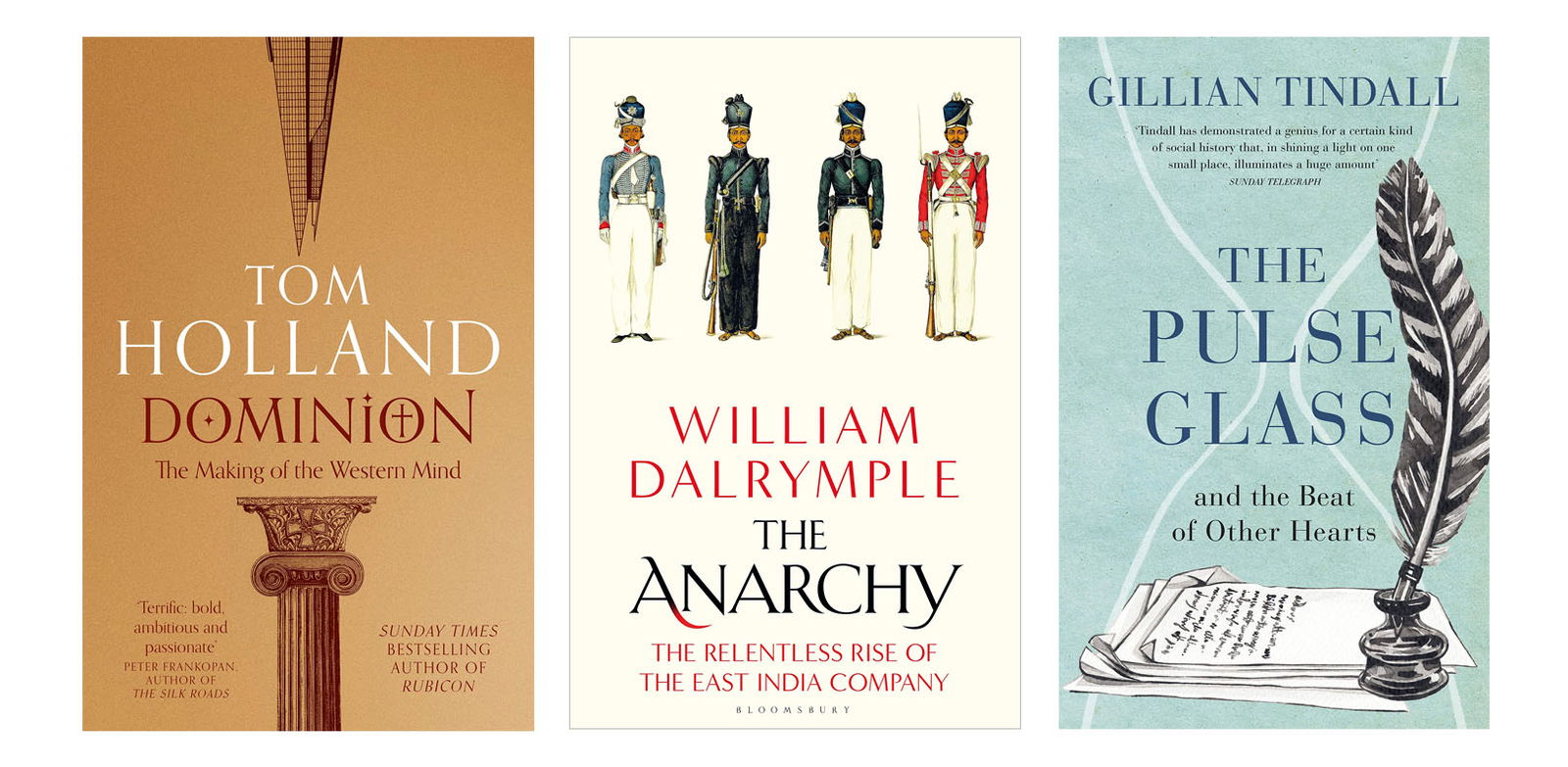Covering Hong Kong, the anniversary of the Peterloo Massacre, porcine inebriation and the Battle of Algiers, nine historians select their favourite books of the past year.
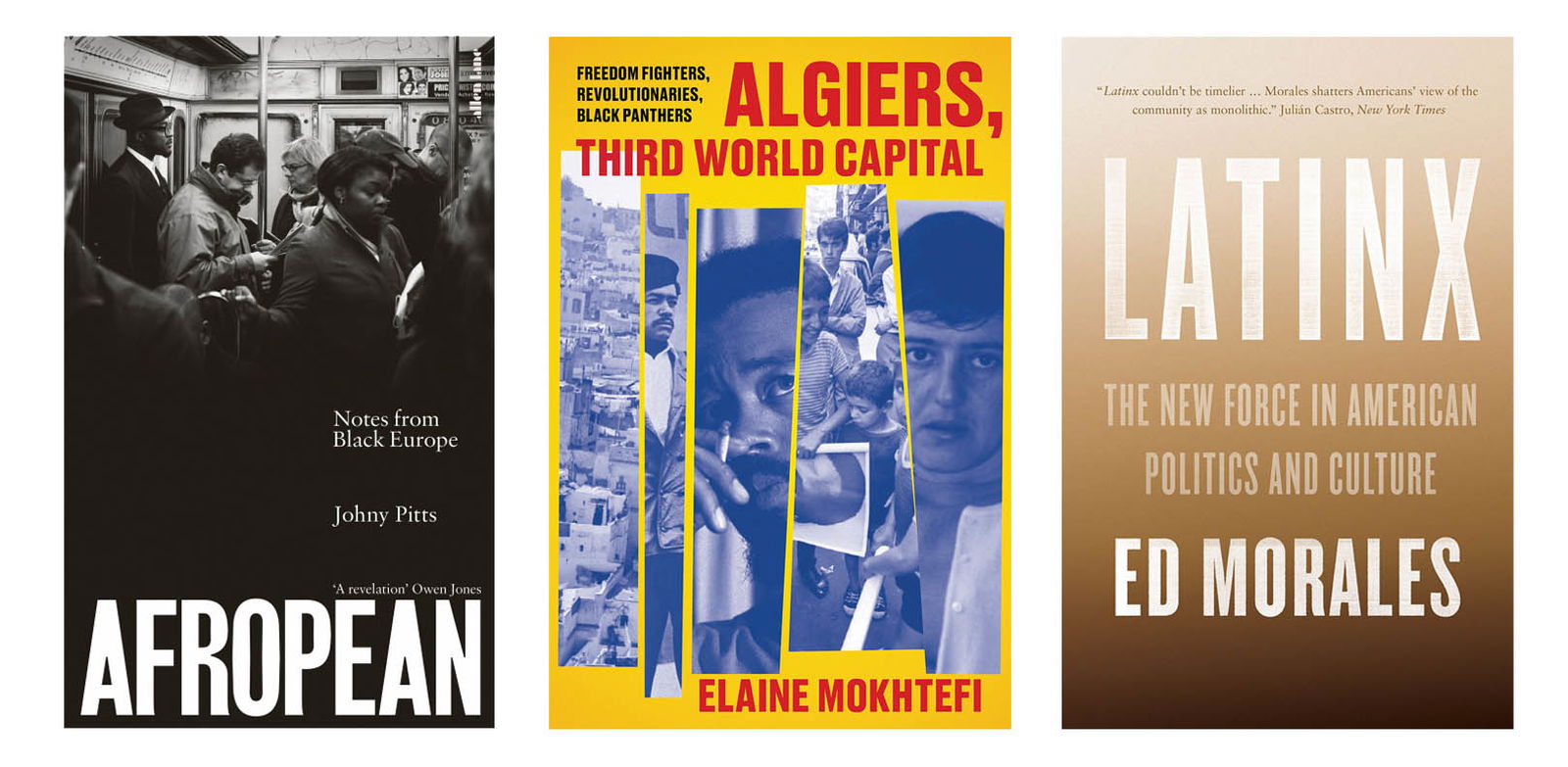
Toby Green
As questions of colonial history and identity become central to framing debate, Jonny Pitts’ Afropean: Notes from Black Europe (Allen Lane) is a must read. A personal, humane and searingly insightful journey through African communities in Europe, this book is the perfect antidote to Brexit, historicising and addressing the histories and legacies of racism at the heart of Europe’s current dilemmas.
The most fascinating book I’ve read over the past year was Elaine Mokhtefi’s Algiers, Third World Capital: Freedom Fighters, Revolutionaries, Black Panthers (Verso). Mokhtefi was a translator and activist caught up in the pan-Africanist movement which made Algiers their HQ in the 1960s. Her lyrical and moving memoir of a lost world of idealism has all the makings of a classic, a hidden history in which leaders of the Black Panthers, Frantz Fanon and the making of the Battle of Algiers all appear.
Perhaps the most optimistic book I’ve read this year was Ed Morales’ Latinx: The New Force in American Politics and Culture (Verso). The book offers a deeply historicised analysis of how neoliberal ideals have manufactured and constrained Latino identities in the US; but also provides something of a manifesto for how mixed identities grounded in Latinx histories – stretching from the convivencia in medieval Iberia to the mestizaje in the Americas – can help to reach beyond the polarised condition we find ourselves in on the eve of 2020.
Toby Green is the author of A Fistful of Shells: West Africa from the Rise of the Slave Trade to the Age of Revolution (Allen Lane) and ‘Africa's Global Powerbrokers’ (February, 2019).
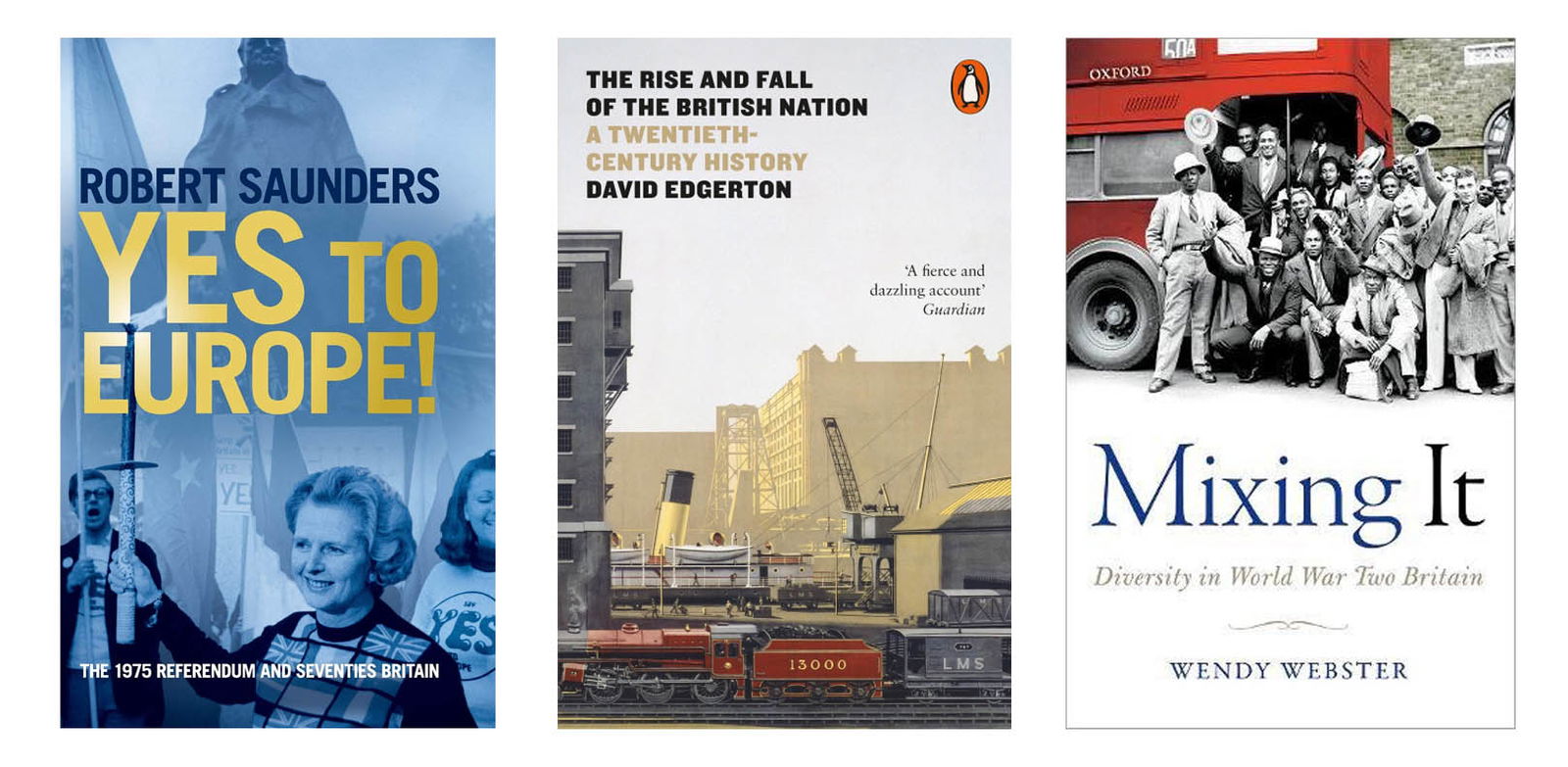
Helen Parr
In the uncertainty of current British politics, histories about Britain’s relations with the wider world are welcome. Robert Saunders, Yes to Europe! The 1975 Referendum and Seventies Britain (Cambridge) is insightful and even-handed. In 1975, the Sun warned that referenda were devices of demagoguery and dictatorship. After the vote to stay in, the Daily Express noted relief that Britain was still a ‘sensible kingdom’. Students in Belfast had to remove stickers proclaiming ‘don’t withdraw’, lest they were misinterpreted as commentary on Catholic birth control. The Democratic Unionist Party leader Ian Paisley argued that the European project ranked with sodomy and ecumenism as threats to Protestant Ulster. Saunders draws finely the historical context of the first referendum, showing a British society alert to the devastation nationalism could bring, and anxious of economic disruption.
David Edgerton’s The Rise and Fall of the British Nation (Allen Lane) challenges many conventional readings of British history. Wendy Webster’s Mixing It: Diversity in World War Two Britain (Oxford) examines the ‘big proposition’: the huge range of people who came to Britain during the war, the things they did and the attitudes of others towards them. Clare Makepeace’s Captives of War: British Prisoners of War in Europe in the Second World War (Cambridge) offers a detailed, moving study of many captives’ lives. Helen Berry’s Orphans of Empire: The Fate of London’s Foundlings (Oxford) is a creative, illuminating history of how Britain’s poorest children survived and sometimes served its empire.
Helen Parr is the author of Our Boys: the Story of a Paratrooper (Allen Lane), winner of the 2019 Longman-History Today Book Prize.
Katrina Navickas
This year marked the bicentenary of the Peterloo Massacre, the violent attack by military forces on a peaceful pro-democracy demonstration in Manchester on 16 August 1819. I was thrilled by Robert Poole’s Peterloo: an English Uprising (Oxford). Poole brings together a huge range of sources, including nearly 200 eyewitness accounts newly discovered in the Parliamentary archives. This is the definitive account of Peterloo and the book’s place as a key text in the history of British politics and society should be long-lasting. If I may squeeze in a companion piece, the graphic novel Peterloo: Witnesses to a Massacre (New Internationalist) by Poole, Eva Schlunke and Polyp, shows how illustration can be used to convey powerful narrative in a way that words cannot.
2019 has also seen a resurgence in 20th-century British urban history. Among the many studies of urban reconstruction and planning published this year, two caught my attention. Catherine Flinn’s Rebuilding Britain’s Blitzed Cities: Hopeful Dreams, Stark Realities (Bloomsbury) offers a comprehensive account of how Hull, Liverpool and Exeter were rebuilt after the Second World War, and the national and local political debates shaping their reconstruction. Otto Saumarez Smith’s Boom Cities: Architect Planners and the Politics of Radical Urban Renewal in 1960s Britain (Oxford) is a lively account of the rise and fall of redevelopment schemes in towns that other scholars often neglect, such as Blackburn. The focus away from London in British history is refreshing and long overdue.
Katrina Navickas is Reader in History at the University of Hertfordshire and the author of ‘Memories of a Massacre’ (August 2019).
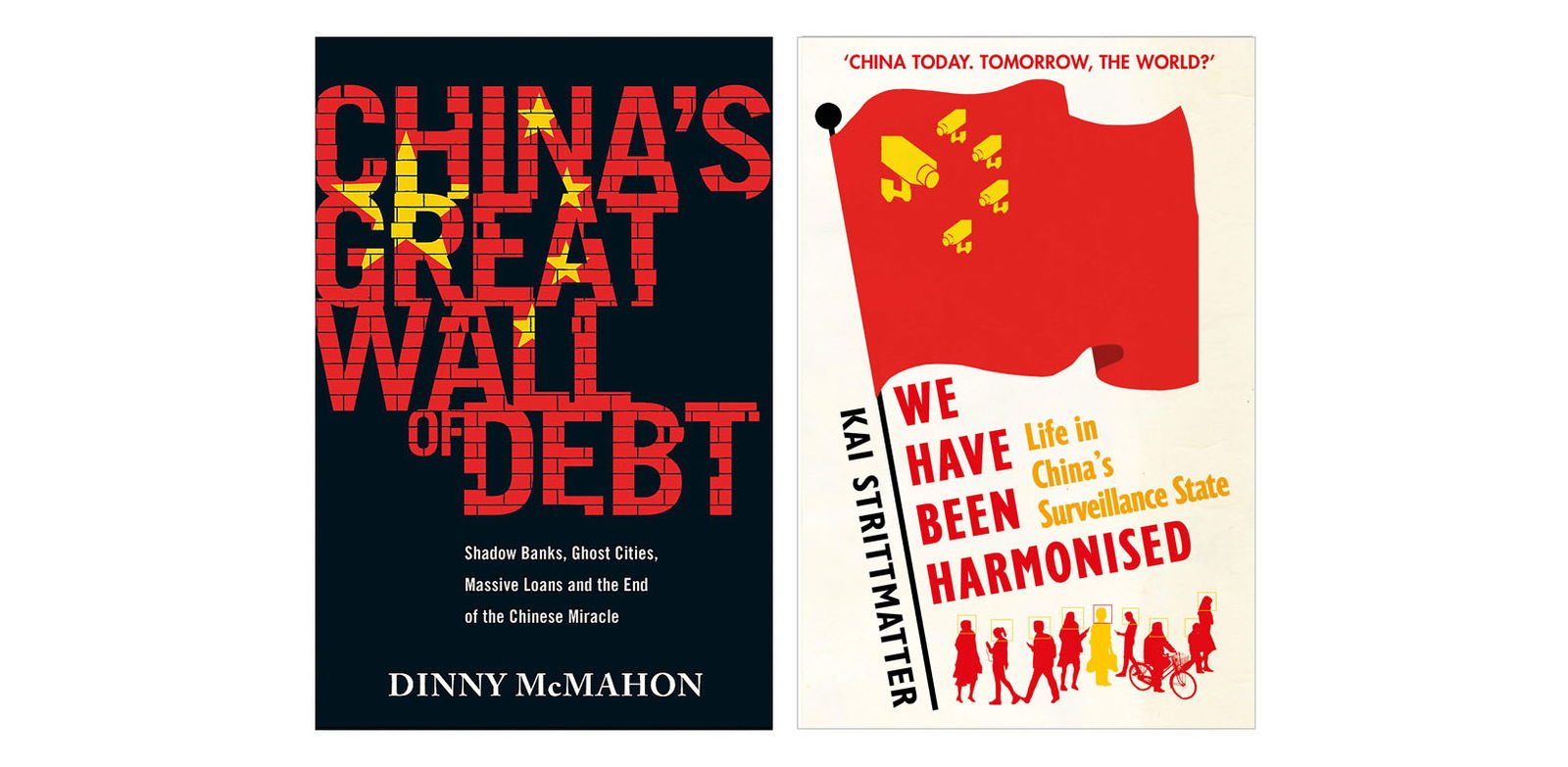
Frank Dikötter
I live and work in Hong Kong, and when I manage to avoid the tear gas and pepper spray I work on a history of China since 1976. One book I keep on reading again and again is Dinny McMahon’s China's Great Wall of Debt: Shadow Banks, Ghost Cities, Massive Loans and the End of the Chinese Miracle (Little, Brown). Every time I cross the border into China I see the ghost cities, the empty shopping malls, the endless clusters of towering condominiums, the shiny business districts, the grim determination to follow a grandiose plan without any regard for human need or demand, let alone cost. The author combines vivid insights with great narrative skills in exposing the extraordinary fragility of this bubble economy.
For those who want to understand why people in Hong Kong are so determined to fight for their remaining freedoms, Kai Strittmatter’s We Have Been Harmonised: Life in China's Surveillance State (Old Street) is an indispensable, suitably chilling account of how Beijing is determined to stamp out any and all dissent, not only at home but also across its borders. Hong Kong was once described as a ‘barren rock’, but today it has become the frontline in a global battle against Beijing’s attempt to export its dystopia abroad. It is too early for an up-to-date history of the Hong Kong protests, but hopefully Anthony Dapiran will soon add a chapter to his short and insightful City of Protest: A Recent History of Dissent in Hong Kong, published in 2017.
Frank Dikötter is the author of How To Be a Dictator: The Cult of Personality in the Twentieth Century (Bloomsbury) and ‘The Great Dictators’ (October 2019).
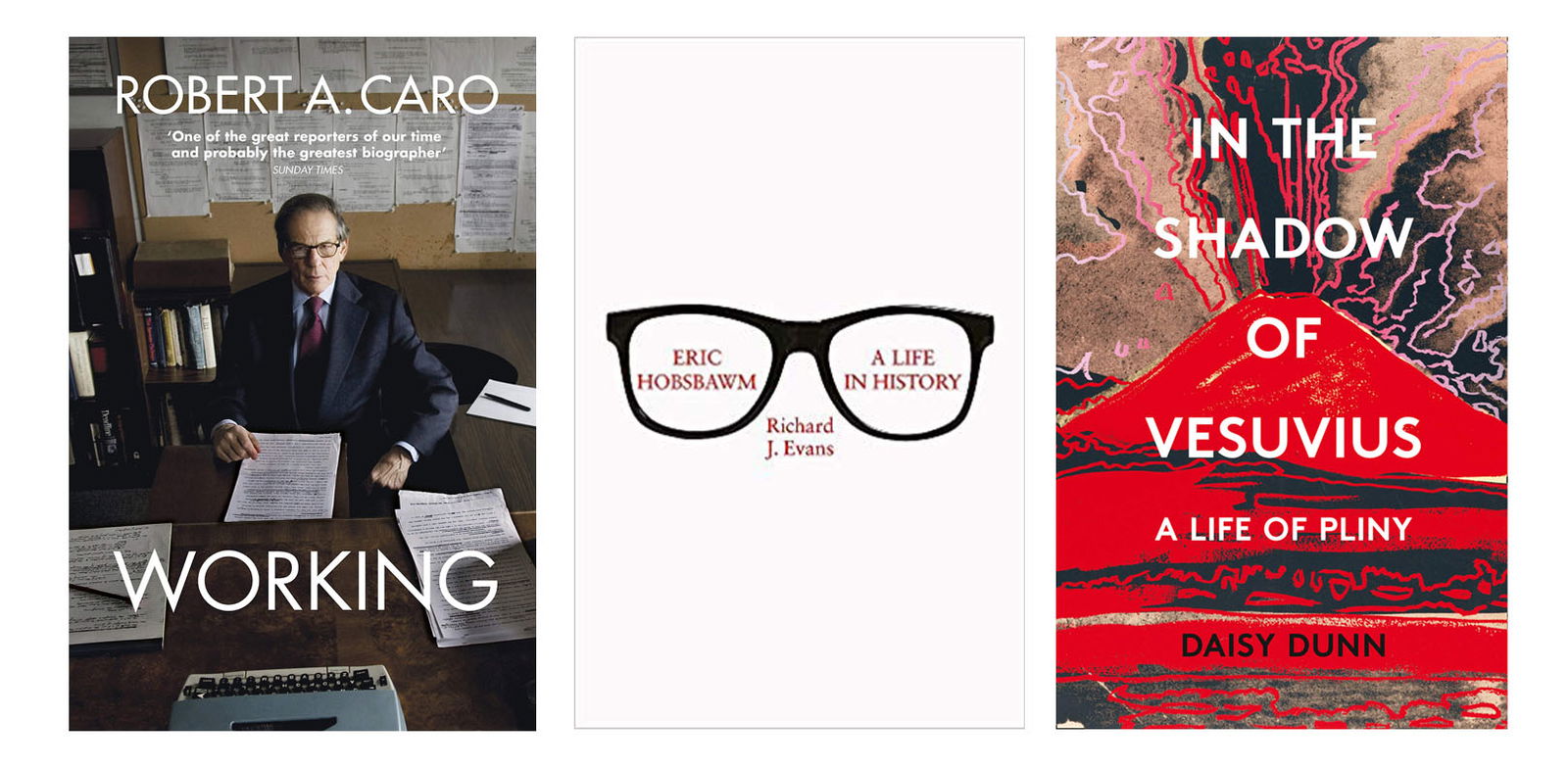
Kathleen Burk
I love to read books about historians writing books and two of my books of the year fall into that category. When Robert Caro’s book Working: Researching, Interviewing, Writing (Bodley Head) was published, I went out the next day, bought it and spent the remainder of that day and most of the next gulping it down. Caro is best known for the four volumes (thus far) of a monumental, and acclaimed, biography of Lyndon Johnson. He insists that when you are working through an archive, you must read everything; most historians undoubtedly try to do so, but a private income and no children would be useful. Even if reading it while feeling guilty about unread papers, it is riveting.
Richard J. Evans has written a detailed, generous biography of an historian steeped in his subject: Eric Hobsbawn: A Life in History (Little, Brown). Indeed, the reader can become steeped in Hobsbawm, as Evans quotes great swathes of his letters, diaries and personal reminiscences. For those who worked in the same fields, it will be a walk down memory lane; for others, Evans makes it clear just how and why Hobsbawm became a celebrated historian.
In my next life, I plan to be an ancient historian and a book that I read for sheer pleasure, without the immediate need to take notes, was Daisy Dunn’s In the Shadow of Vesuvius: A Life of Pliny (William Collins). Well-researched and beautifully written, it is a real page-turner – and I mean that as a compliment.
Kathleen Burk is author of The Lion and the Eagle: the Interaction of the British and American Empires 1783-1972 (Bloomsbury) and ‘America: the Last Empire’, January 2019.
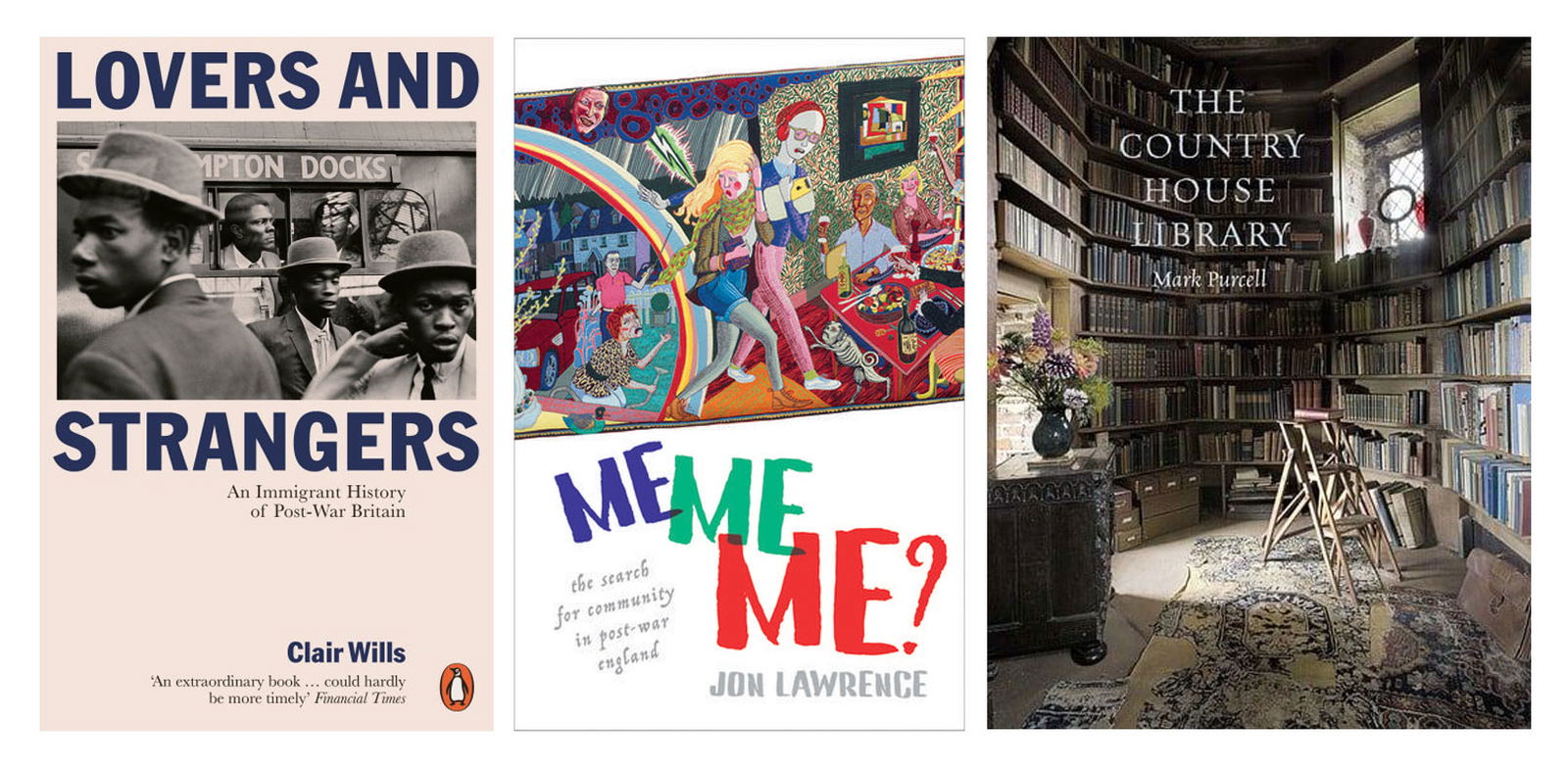
Peter Mandler
Social history is back, with new sources and ingenious new techniques. Lovers and Strangers: An Immigrant History of Post-War Britain (Penguin) by Clair Wills addresses a bizarrely still under-served subject with a bewitching literary imagination that ranges from Irish nurses to Punjabi poets. There is now a lot of writing on black and Asian politics and engagements with the state but there is no better written or conceived attempt to plumb everyday immigrant experience than this book.
Jon Lawrence’s Me, Me, Me?: The Search for Community in Post-War England (Oxford) redeploys ordinary people’s responses to social surveys to dig out layers of meaning that the pollsters missed: a vivid and convincing argument about the eternal tug between individualism and community. Finally, a very different time and a very different cast of characters, but still recognisably social history (as well as many other things): Mark Purcell’s The Country House Library (Yale) brings to life seemingly inert volumes and their readers in sumptuous surroundings.
Peter Mandler is Professor of Modern Cultural History at the University of Cambridge.
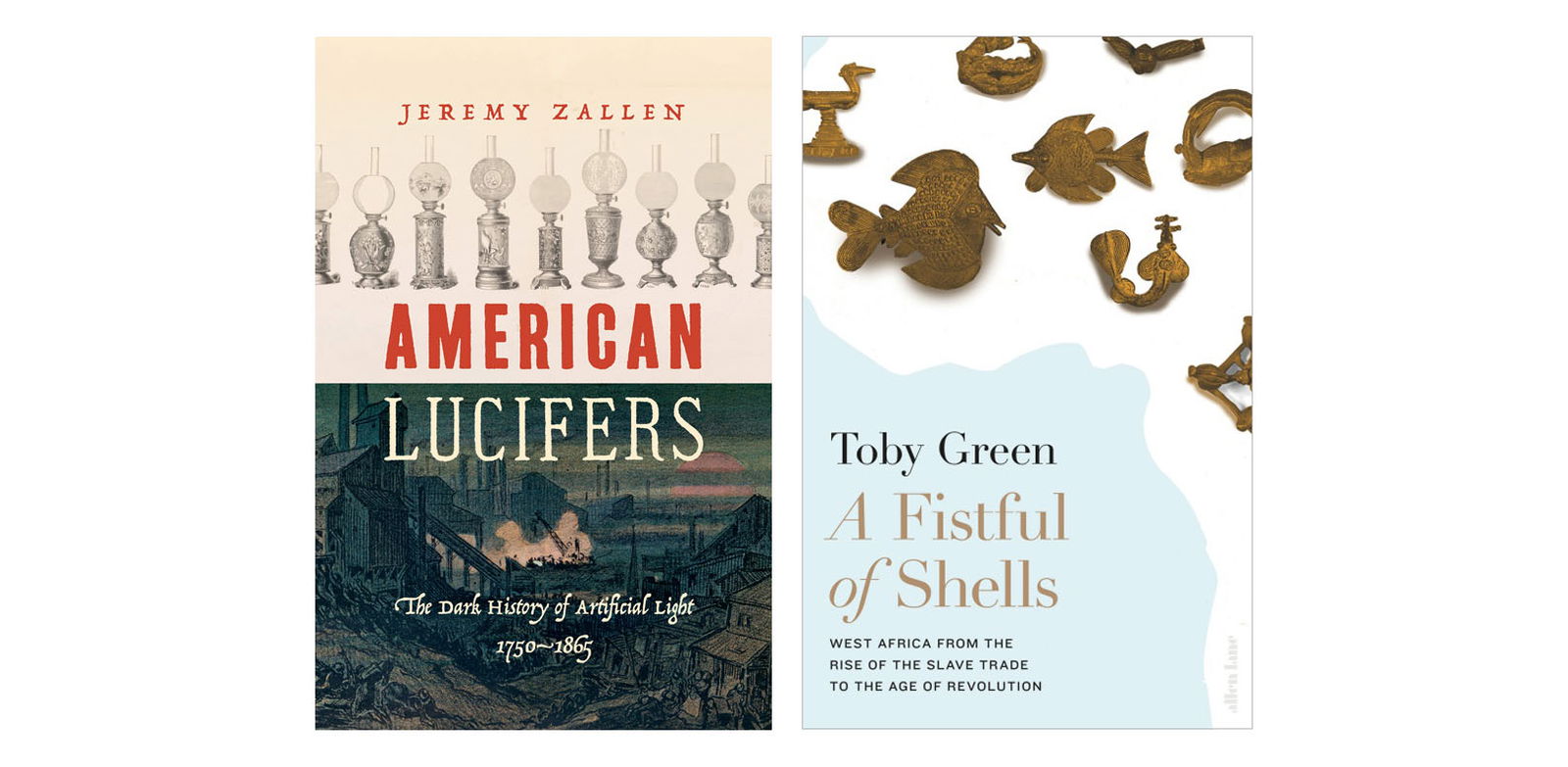
Patricia Fara
The title American Lucifers: The Dark History of Artificial Light (University of Chapel Hill Press) might sound tediously technological, but Jeremy Zallen eloquently illuminates some murky corners of American history, such as the forced annual march of half a million pigs to meat-packing plants in Cincinatti, where they were converted into cheap candles enabling exploited New York seamstresses to work even longer hours. Imparting a Dickensian empathy to his evocations of such concealed labour, Zallen probes behind self-serving success narratives about ineluctable progress towards a better society. His vivid details of porcine inebriation (those reluctant mobile resources were dosed with gin and fed on whiskey waste) are interleaved with descriptions of enslaved miners and London match-factory children who glowed in the dark.
A similarly passionate historian who compels his readers to confront grim realities of the past is Toby Green, a British academic with a yen for travel. In his wonderfully researched A Fistful of Shells: West Africa from the Rise of the Slave Trade to the Age of Revolution (Allen Lane), Green blends archival studies and oral memories to redraw Africa’s historical map. When Europeans invaded with guns, they despatched their prisoners through ‘Doors of No Return’ to plantation slavery in the Americas – but they also suppressed the existence of rich and thriving cultures that Green has vibrantly reconstructed.
Patricia Fara is the author of A Lab of One’s Own: Science and Suffrage in the First World War (Oxford).
Jessie Childs
You don't have to agree with Tom Holland’s argument in Dominion: The Making of the Western Mind (Little, Brown) – that most Western values are underpinned by Christianity – to appreciate what a bold and beautifully realised book this is. I admire its scope, erudition and the sheer gall of shackling the 17th-century Digger Gerrard Winstanley to John Lennon’s ‘Imagine’. The most intellectually stimulating book I’ve read all year.
Travel writers make wonderful historians. They see things differently. William Dalrymple is an established and rigorous historian, but he also retains the questing spirit and cultural sensitivity of his first vocation. In The Anarchy: The Relentless Rise of the East India Company (Bloomsbury), he writes beautifully and with controlled rage about how a trading corporation founded by a bunch of ‘buttery Elizabethan burghers’ managed to take over Mughal India. ‘Loot’, he reminds us, is a Hindustani word.
I also loved Gillian Tindall’s The Pulse Glass and the Beat of Other Hearts (Chatto & Windus), which takes various objects – a toy train, an ivory figure, unnamed photographs, her great-great grandfather’s sand-glass for counting heartbeats – and explores their histories and the nature of memory. Tindall writes with affecting precision, noting, for example, that a bag of crematorium ashes weighs the same as a newborn baby. Reading this book feels like looking out of the window on a long train journey. One is lulled by the rhythms into deep reflection and inexplicable nostalgia for the lives and landscapes of others.
Jessie Childs is the author of God’s Traitors: Terror and Faith in Elizabethan England (Bodley Head).
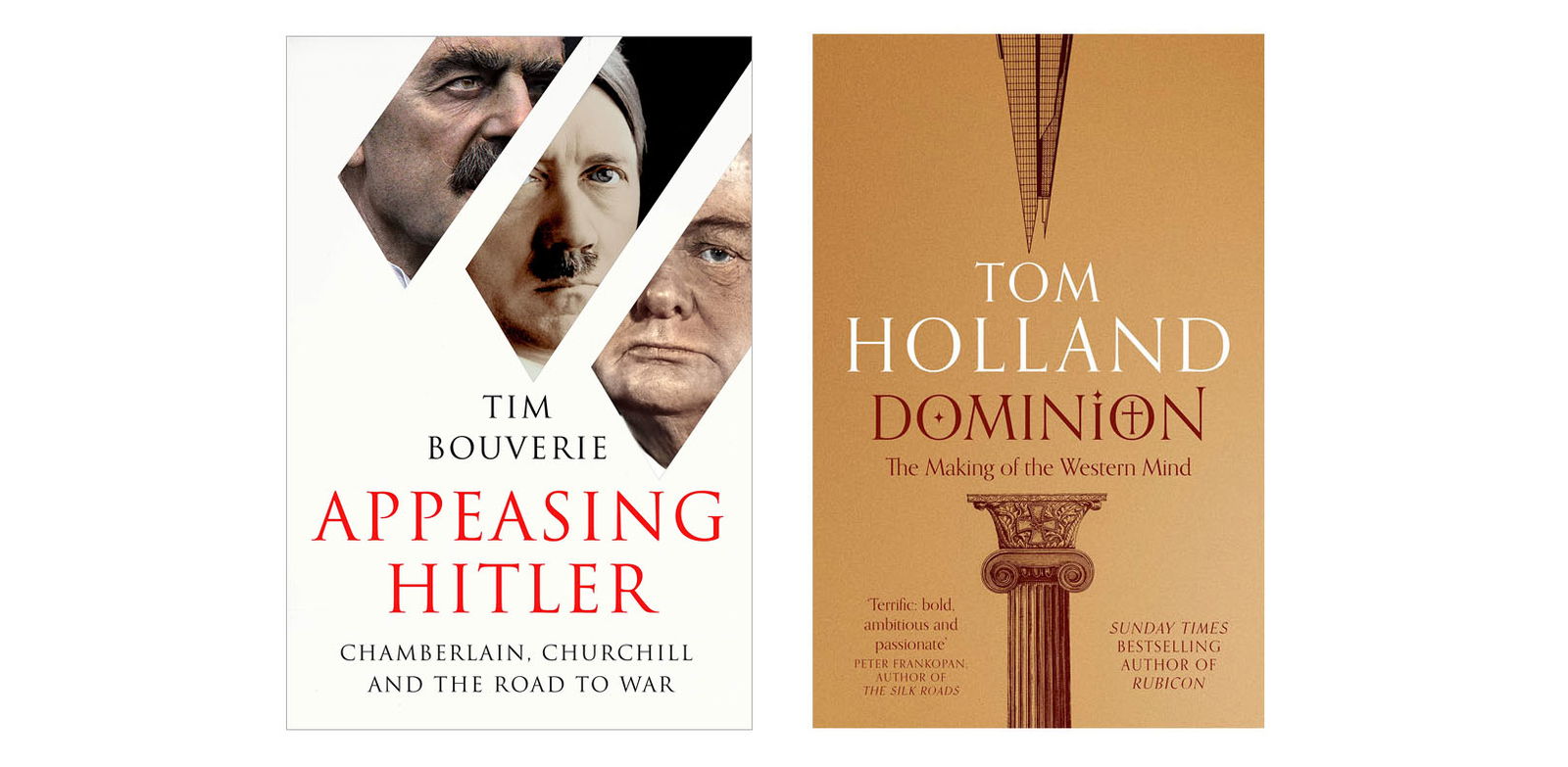
Ali Ansari
Tim Bouverie’s Appeasing Hitler: Chamberlain, Churchill and the Road to War (Bodley Head) is a fascinating narrative on the politics of wishful thinking and the law of unintended consequences in international relations. Bouverie paints a painful picture of the extent of appeasement within the wider British establishment and is especially critical of Chamberlain’s earnest attempts to go the extra mile with Hitler in the belief that ‘reason’ would ultimately win out. It is a salutary reminder of the dangers of reading into the evidence what you want to see and should be essential reading for all foreign policy practitioners.
Tom Holland has produced another thought-provoking book, this time taking the long view of the impact of Christianity and Christian philosophy and ideas in particular on the shaping and defining of the Western mind. It is, as one might expect of Holland, elegantly written and powerfully argued, richly contextualised, and in its final chapters, wonderfully contemporary.
Ali Ansari is a Founding Director of the Institute for Iranian Studies at the University of St Andrews.
